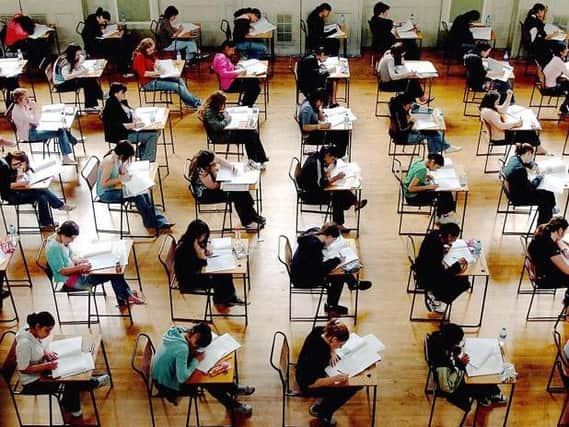Some degree students get much better value for money than others - study


A new study calculates that economics undergraduates receive the equivalent of around 26 hours of one-to-one contact time over a three-year course.
The findings come at a time when tuition fees are once again in the spotlight and are likely to spark fresh debate about whether students are getting value for money from their degree course.
Advertisement
Hide AdAdvertisement
Hide AdMany English universities now charge UK and EU students the maximum £9,250 for the vast majority of undergraduate courses.
The new study, by Mike Peacey of the New College of the Humanities and Gervas Huxley of Bristol University, argues that the amount students pay in tuition fees makes no difference to how much teaching they receive.
The authors came up with a new measure, TEACH, to compare teaching time in three different subjects - economics, history and physics - using data obtained from 67 UK universities under freedom of information laws.
The TEACH metric takes into account factors such as time spent in small tutorials and lectures to come up with a unit of teaching time that is equivalent to an hour of one-to-one contact with a professor or academic.
Advertisement
Hide AdAdvertisement
Hide AdIt found that physics students receive the largest average TEACH time - equivalent to 74.6 one-to-one contact hours over a three-year degree, around 2.3 times as much as history students, who get the equivalent of 32.6 hours, while economics undergraduates typically get 26.1 hours.
There were also differences within subjects - economics students in the top 10% of universities for teaching time for the subject receive the equivalent of almost five times as much teaching time as economic students at the bottom 10% of institutions.
The paper says: "How much students must pay in tuition fees makes no difference to how much teaching they receive."
"Clearly, some students are receiving much better value for money than others. For a market to function properly, participants must be able to compare what is offered by different providers. The enormous variation in teaching intensity found in our data strongly suggests that in the market for teaching price signals are weak," the authors said.
Advertisement
Hide AdAdvertisement
Hide AdSome have argued that arts and humanities students spend less time in lectures and tutorials but do more independent study than their peers studying science.
But the authors said: "Our argument is if that's the case, and these students are doing all of their work in the library, why are they paying the same tuition fees as someone who is receiving a lot of tuition?"
The paper comes just weeks after the Government announced plans to assess teaching quality at UK universities by subject, giving each subject at each university a rating. The move is part of a bid to give would-be students more information about courses.